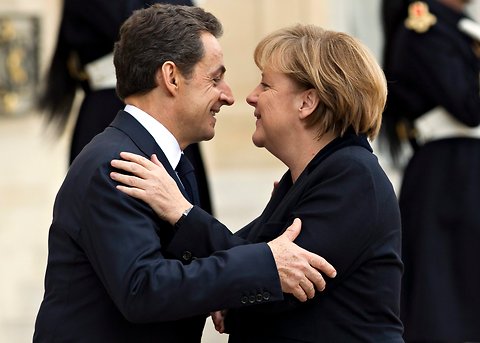ATHENS — After a week of tense negotiations, Greece and its foreign lenders were close to a deal on Monday on a new round of austerity measures that must be taken by the country to unlock further crucial rescue aid, with a politically contentious streamlining of the nation’s civil service looking likely.
Greece’s international creditors – the European Commission, European Central Bank and International Monetary Fund – said Monday that they had concluded their latest review of the country’s economic program and reached an agreement that was expected to be approved by euro zone finance ministers meeting in Brussels later in the day.
The lenders, known collectively as the troika, cited “important progress,” referring specifically to an overhaul of the tax system and a recapitalization of Greek banks that is “nearly complete.” But they noted that policy implementation was “behind in some areas.”
It remained unclear early Monday whether the finance ministers would approve the next batch of rescue aid of 8.1 billion euros, or $10.5 billion. Both the Greek finance minister, Yannis Stournaras, and the I.M.F.’s chief envoy to Athens, Poul Thomsen, said late on Sunday that progress had been made and that there was hope for a final deal before Monday’s ministers’ meeting.
The head of the euro zone finance ministers’ group, Jeroen Dijsselbloem of the Netherlands, told reporters in Brussels on Monday that the next loan to Greece might be disbursed in installments. “Whether that is necessary and helpful we will see on the basis of what the troika will present to us,” he said.
The negotiations had faltered last week on Greek pledges for cuts to civil service, a sensitive measure that nearly brought down the government last month after Prime Minister Antonis Samaras unilaterally shut down the state broadcaster, ERT. The move, which put some 2,700 employees out of work, prompted the junior partner in the three-way coalition of political parties to quit.
After much horse-trading, Greece and its creditors agreed on a procedure to put 12,500 civil servants into a so-called mobility program, where staff would receive a reduced wage for several months before being moved to another public sector post or dismissed, according to a government official who asked not to be named because of the confidential nature of the talks. Athens has also pledged to lay off a total of 15,000 civil servants by the end of next year.
Reports that thousands of employees of the capital’s municipal police force would be included in the plan prompted local workers to walk off the job on Monday. On Sunday night, the mayor of Athens, Giorgos Kaminis, was slightly injured after being assaulted by protesting workers while leaving a meeting on the cutbacks with visiting mayors from other Greek cities.
Although the negotiations on the civil service overhaul attracted the most media attention and speculation, the talks between government and troika officials focused on a range of issues. These included a budget gap of around 2 billion euros for 2013 and 2014, which officials have reportedly found ways to plug, chiefly through the control of spending in the health sector. Government officials said they would submit to Parliament a “multi-bill” with all the agreed-to changes as soon as the euro zone finance ministers approve them.

Article source: http://www.nytimes.com/2013/07/09/business/global/greece-and-lenders-near-deal-on-new-austerity-measures.html?partner=rss&emc=rss




